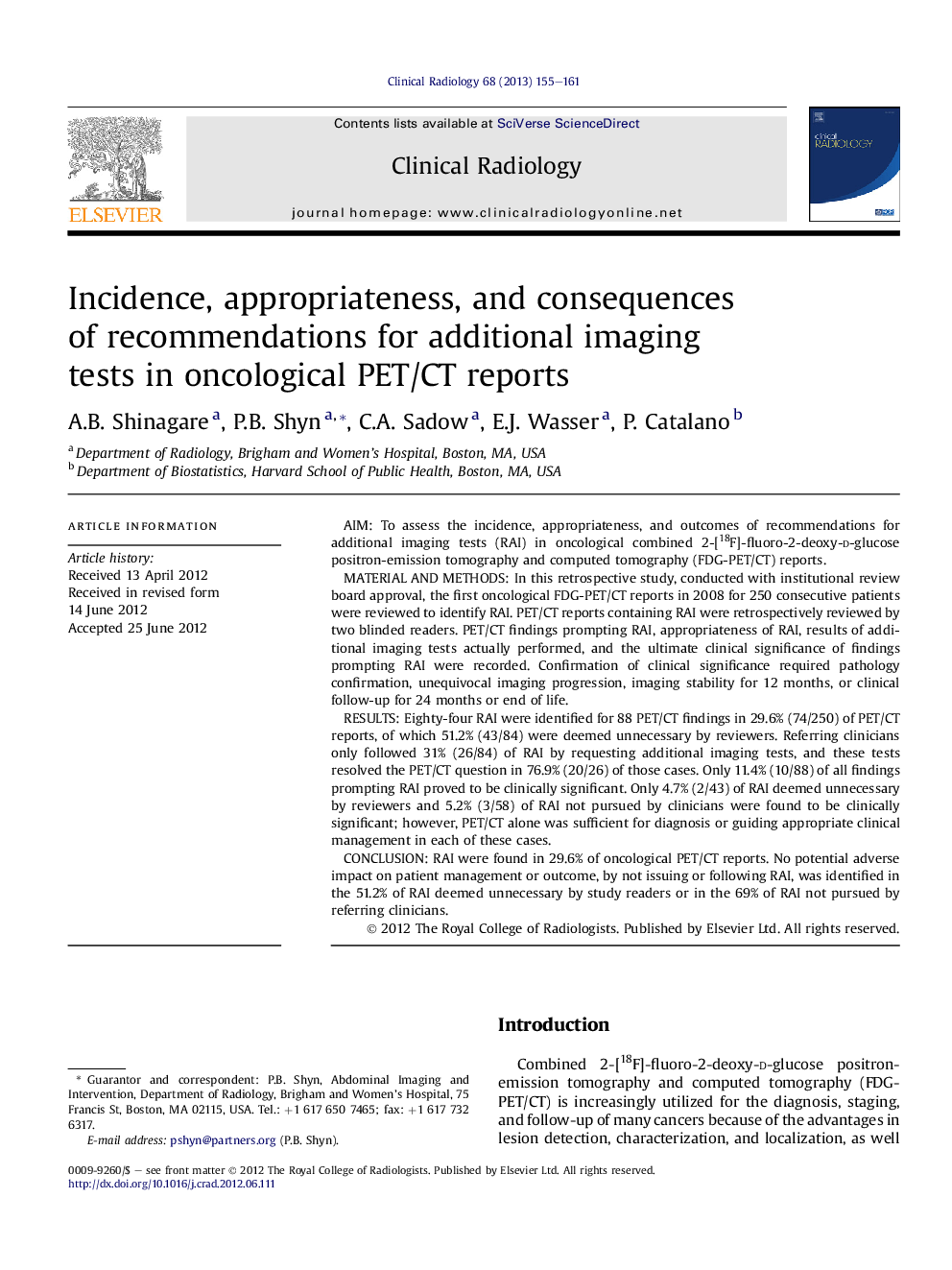| Article ID | Journal | Published Year | Pages | File Type |
|---|---|---|---|---|
| 3982149 | Clinical Radiology | 2013 | 7 Pages |
AimTo assess the incidence, appropriateness, and outcomes of recommendations for additional imaging tests (RAI) in oncological combined 2-[18F]-fluoro-2-deoxy-d-glucose positron-emission tomography and computed tomography (FDG-PET/CT) reports.Material and methodsIn this retrospective study, conducted with institutional review board approval, the first oncological FDG-PET/CT reports in 2008 for 250 consecutive patients were reviewed to identify RAI. PET/CT reports containing RAI were retrospectively reviewed by two blinded readers. PET/CT findings prompting RAI, appropriateness of RAI, results of additional imaging tests actually performed, and the ultimate clinical significance of findings prompting RAI were recorded. Confirmation of clinical significance required pathology confirmation, unequivocal imaging progression, imaging stability for 12 months, or clinical follow-up for 24 months or end of life.ResultsEighty-four RAI were identified for 88 PET/CT findings in 29.6% (74/250) of PET/CT reports, of which 51.2% (43/84) were deemed unnecessary by reviewers. Referring clinicians only followed 31% (26/84) of RAI by requesting additional imaging tests, and these tests resolved the PET/CT question in 76.9% (20/26) of those cases. Only 11.4% (10/88) of all findings prompting RAI proved to be clinically significant. Only 4.7% (2/43) of RAI deemed unnecessary by reviewers and 5.2% (3/58) of RAI not pursued by clinicians were found to be clinically significant; however, PET/CT alone was sufficient for diagnosis or guiding appropriate clinical management in each of these cases.ConclusionRAI were found in 29.6% of oncological PET/CT reports. No potential adverse impact on patient management or outcome, by not issuing or following RAI, was identified in the 51.2% of RAI deemed unnecessary by study readers or in the 69% of RAI not pursued by referring clinicians.
